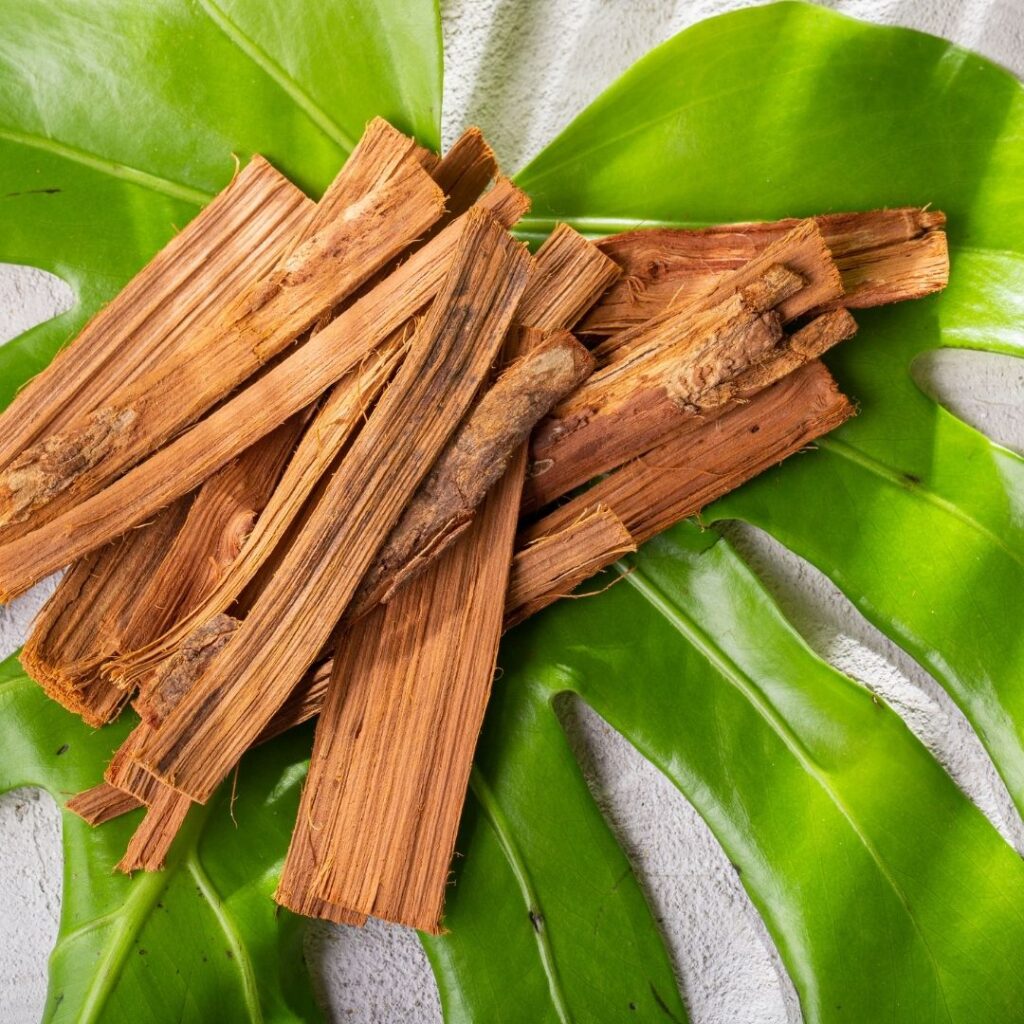
Cat’s claw

Cat’s Claw grows at altitudes between 200 and 1,500 meters above sea level (masl) in regions like Amazonas, Ucayali, Loreto, San Martín, and Madre de Dios. It contains alkaloids with immune-modulating properties, antioxidants that protect against oxidative stress, and anti-inflammatory compounds that help reduce inflammation.
Cat’s Claw is known for its anti-inflammatory properties, making it effective in managing conditions like arthritis and other forms of chronic inflammation. It also helps alleviate symptoms of prostatitis by reducing inflammation in the prostate gland.
However, Cat’s Claw is not recommended for individuals with autoimmune diseases (such as lupus or multiple sclerosis) or those taking immunosuppressive medications, as it may interfere with immune system regulation.
| AREAS – MASL | RICH IN |
| 200 – 1500 MASL – AMAZONAS – UCAYALI – LORETO – SAN MARTÍN – MADRE DE DIOS | – Alkaloids (with immune-modulating properties) – Antioxidants (which help protect against oxidative stress) – Anti-inflammatory compounds (beneficial for reducing inflammation) |
| BENEFITS | CONTRAINDICATIONS |
| CAnti-inflammatory Properties (Arthritis, General Inflammation): Cat’s Claw contains compounds like quinovic acid glycosides that are known to reduce inflammation by inhibiting the production of inflammatory agents in the body. This makes it helpful for managing conditions like arthritis and other forms of chronic inflammation. Prostatitis: The anti-inflammatory properties of Cat’s Claw can also benefit men suffering from prostatitis, an inflammation of the prostate gland. By reducing inflammation, it can help alleviate symptoms such as pain and urinary discomfort | Cat’s Claw is not recommended for individuals with autoimmune diseases (such as lupus or multiple sclerosis) or those taking immunosuppressive medications, as it may interfere with immune system regulation. |
RECIPE – Cat’s Claw Tea
Ingredients
Instructions
- Boil the Water: Bring the water to a boil in a small saucepan.
- Add Cat’s Claw: Add the Cat’s Claw bark to the boiling water, then reduce the heat and let it simmer for 15-20 minutes.
- Optional Ginger: Add fresh ginger to the tea if you want to enhance the anti-inflammatory effects.
- Strain: After simmering, strain the tea into a cup to remove the bark (and ginger, if used).
- Sweeten and Serve: Add honey for sweetness if desired, and enjoy the tea warm.
- Supporting the reduction of inflammation related to arthritis and prostatitis
